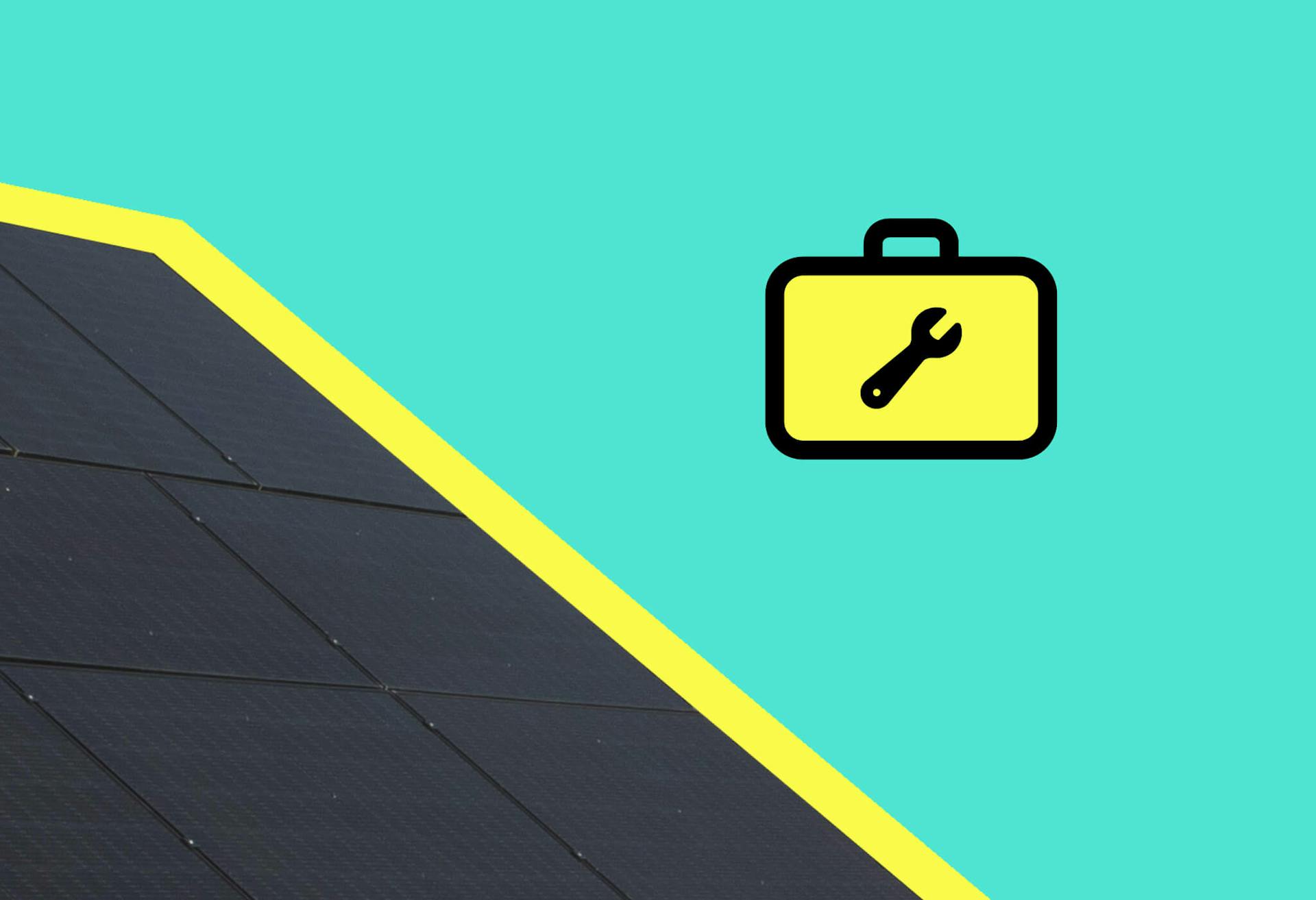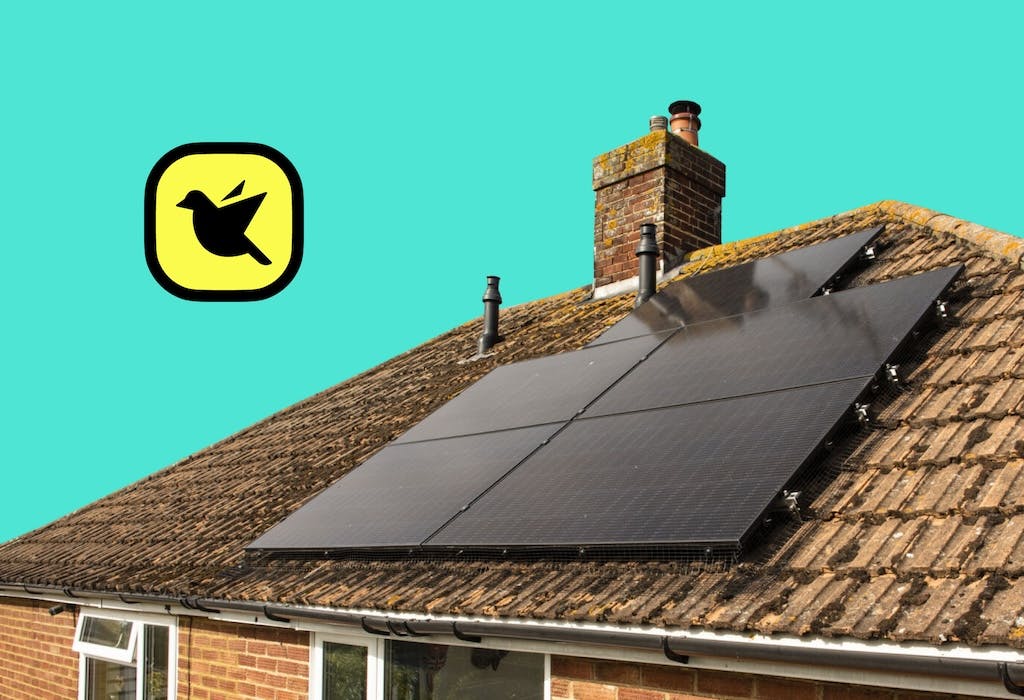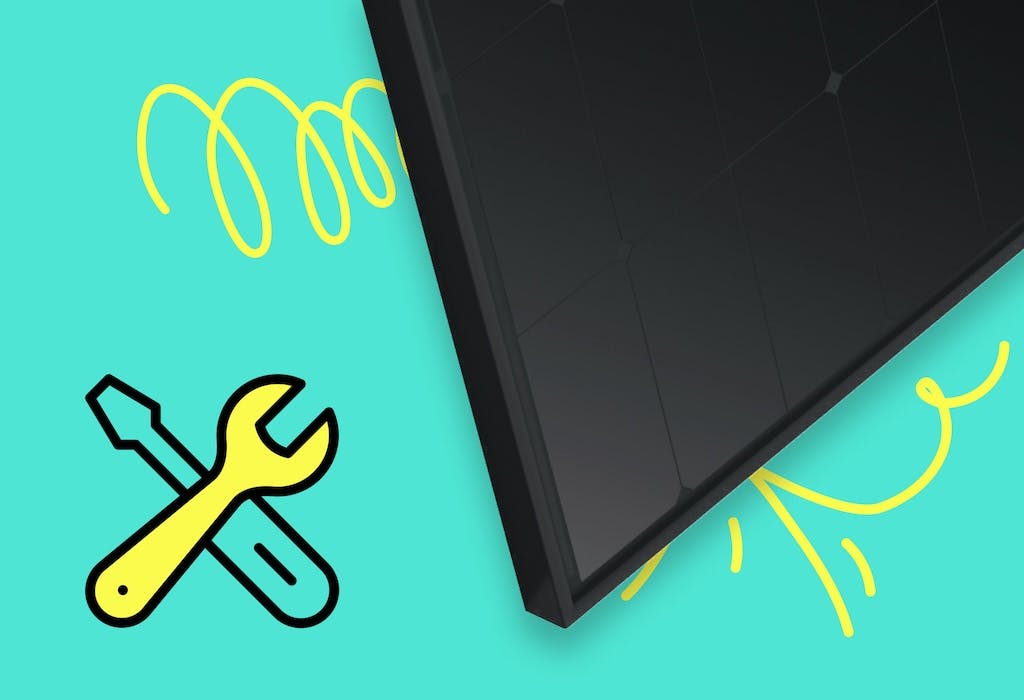- Solar advice hub
- Maintenance
- How to clean your solar panels
How to clean your solar panels
Here's our step-by-step guide about how to clean your solar panels, how often to do it, and what professional alternatives are available.


Why you can trust our content
We know that the solar industry is full of misinformation, but we only use reliable sources, including:
- Our experienced solar experts, installers and system designers
- Our own database of solar & battery system designs
- Authoritative bodies like MCS and the UK government




At a glance
Solar panels work at their best when there are zero obstructions between the solar cells and the light that’s hitting them - so it makes sense that the surface of your solar panels should be as clean as possible. Debris, droppings and dust create a barrier that will ultimately reduce the output of your system.
Perhaps the only upside of the UK’s relentlessly rainy weather is the fact that it will keep your solar panels clean for you - whereas solar panels in hot, drier countries aren’t quite so lucky.
However, it’s still necessary to give your solar panels a clean every two or three years - and here’s how to do it safely.
Do solar panels need cleaning?
Solar panels are designed with a special type of hydrophobic glass, which means rainwater runs right off them and is usually enough to keep them clean. This is why solar panels are often described as ‘self-cleaning’.
And because the UK experiences a lot of rain, this self-cleaning process happens very regularly. According to the Energy Saving Trust, many solar panel system owners may not need to clean their systems at all.
However, it’s usually worth giving your solar panels a proper clean every two or three years, just to make sure they’re still performing as well as they can be. And if you live near the sea, or near dusty farmland, it’s necessary to clean your solar panels a bit more frequently, perhaps a couple of times a year.
And if your area is inundated with birds, you may want to get bird protection to avoid the mess caused by them defecating on your panels.
Verified expertIf your house is near trees (which may leave debris), near the sea (which can leave a salt deposit), or near agricultural land (which may leave crop treatment residue or dust on the panels), then regular solar panel cleaning is recommended – probably between six months and two years, depending on the severity.
Michael Buhagiar
Senior EPVS Analyst at Certi-fi Schemes Limited
Michael's work with EPVS ensures that the savings estimates from solar installers are as accurate as possible.
How do you clean solar panels?
If you decide to clean your solar panels yourself, it’s important that you follow your manufacturer's instructions, or you might void your panels' warranty. DIY cleaning can be rewarding and cost-effective, but hiring professional services can also be a viable alternative (more on this below).
If you’re set on taking the DIY route, here are the essential steps you should take.
1. Get a telescopic cleaning pole
A telescopic cleaning pole is a long, extendable pole designed for cleaning hard-to-reach areas, making it perfect for solar panels. You can buy one from online retailers like Amazon or DIY shops - prices typically range from £70 to £150, depending on the quality and features.
The crucial step is to have a water-fed pole that allows you to apply water and cleaning fluid directly to your panels. Look for models with an integrated dispenser for soap or cleaning fluid, which will make the cleaning process more efficient.
2. Get gentle cleaning products
When it comes to cleaning fluids, it's essential to use gentle products to avoid damaging the surface of your panels. Opt for mild soap or glass-cleaning fluid specifically designed for sensitive surfaces.
Conventional household glass cleaners can effectively remove any dirt, however make sure you avoid using alkaline or strong acidic solvents (such as hydrofluoric acid, alkali, or acetone), as these can harm your panels.
Always check the product labels to make sure they’re safe for use on solar panels.

3. Wait for a cool day
It's best to clean solar panels on a cool day or, if it has to be on a hot day, first thing in the morning or in the evening.
Cleaning the panels when they’re hot can increase thermal stress on the photovoltaic (PV) modules and potentially cause damage. By avoiding the high midday heat, you reduce the risk of cracking and other thermal-induced issues, ensuring your panels remain in optimal condition.
Plus, cooler temperatures will also make the cleaning process more comfortable for you.
4. Shut down your system
Make sure you turn off your system before cleaning your solar panels to keep you safe from potential electrocution and to avoid any electrical damage.
You can find the specific shutdown procedures in your solar panel system’s manual. But for most systems, you'll first need to go to your main switchboard and find the relevant isolator switch to cut off the power from your PV panels. Next, you'll need to switch off the power from the inverter (and solar battery, if you have one) to your home or the grid.
It is vital that you make sure the solar array has been disconnected from all live components before you start cleaning.
5. Clean your panels
Once you have all the above in place, the actual cleaning process is straightforward.
From ground level, use your telescopic cleaning pole to wash, rinse and wipe the panels. Make safety your top priority and don't climb onto the roof without the right equipment and training.
If you live in an area with hard water, you'll need to make sure you thoroughly dry your panels with a squeegee or sponge. If not removed properly, hard water can leave mineral deposits and marks on the panels, and this will affect their output.
Can you hire someone else to clean your solar panels?
If you'd prefer not to go through the hassle of cleaning your solar panels yourself, hiring someone else is a convenient option. Professional solar panel cleaning services in the UK are readily available and typically charge around £10 per panel.
These experts have the tools and experience to clean your panels efficiently and safely, saving you time and effort.
Summary
By following the simple steps we've outlined above, your solar panels will stay productive and continue to perform at their best. Although regular solar panel cleaning is rarely necessary in the UK, giving them a proper clean every few years is a key part of solar maintenance.
If you're interested in finding out how much you could save with a solar & battery system, simply click the button below and answer a few quick questions - and we’ll provide an estimate.
Solar panel cleaning: FAQs
Related articles

Solar panel maintenance: an expert guide
Read full story
Solar panel bird proofing: an expert guide
Read full story
How long do solar panels last?
Read full story
6 problems to watch out for if you have solar panels
Read full story
Written byMelody Abeni
Based in London, Melody is a specialist green technology writer who has been covering sustainability, climate action and ESG for the past five years, after gathering operational experience in green investing and financial services. She has written for various industry publications, including renewable technology advisor The Eco Experts, and she holds a Master’s degree in law from Birkbeck University.
